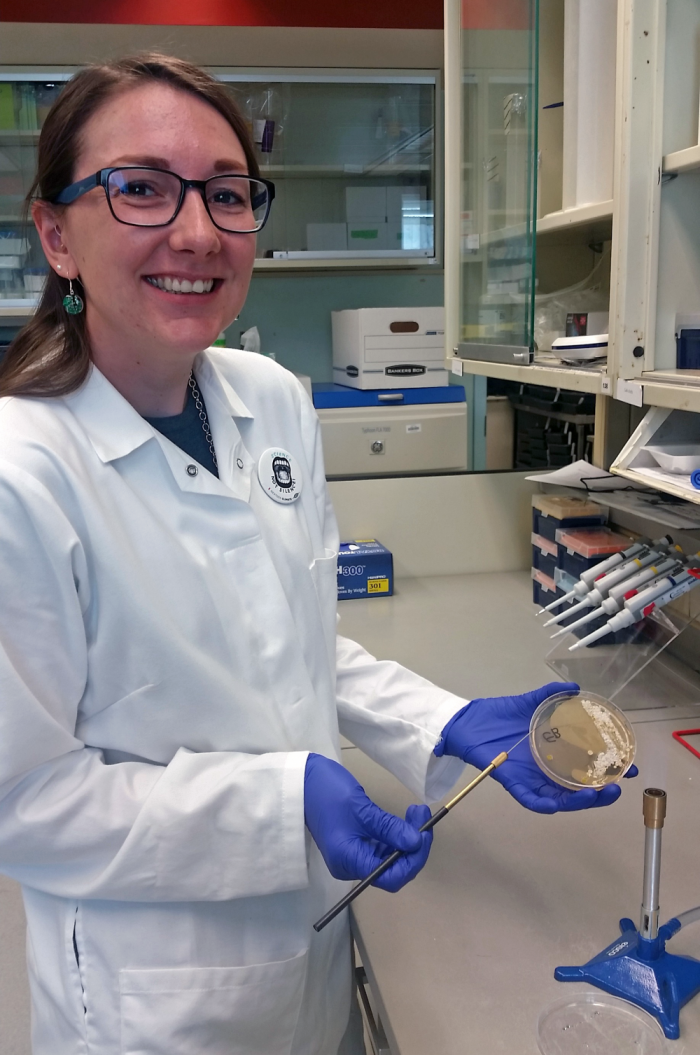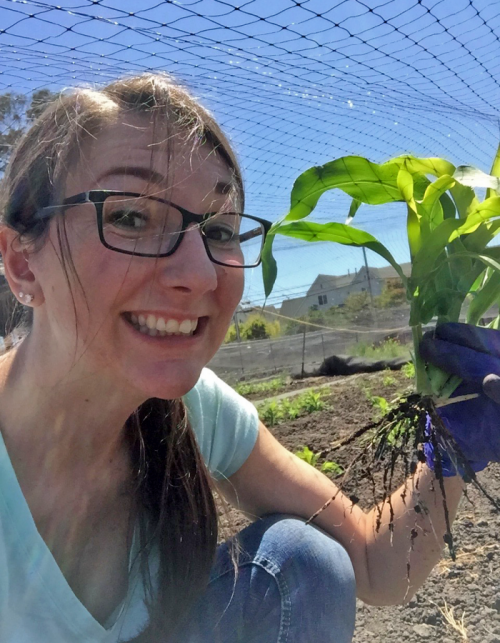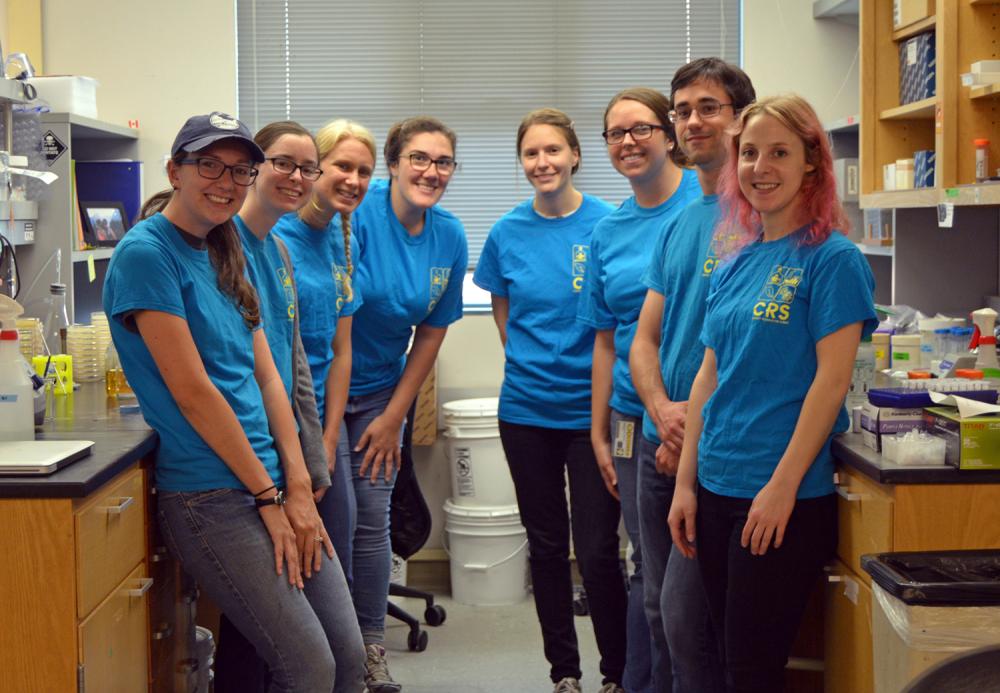Tuesday Simmons: Sharing Science with the Public
We spotlight 3rd year UC Berkeley Plant & Microbial Biology graduate student Tuesday Simmons, who studies the role of Actinobacteria inside the roots of drought-stressed crop plats. Enjoy this Q&A with Tuesday on her love for learning and passion to share science with the public.
 April 2018
April 2018
We spotlight 3rd year UC Berkeley Plant & Microbial Biology graduate student Tuesday Simmons. Tuesday studies the role of Actinobacteria inside the roots of drought-stressed crop plats in the labs of Devin Coleman-Derr and Adam Arkin. She has been volunteering with BASIS since 2016, teaching lessons “Microbes in Action!” and “Cells & Microscopes.” Enjoy this Q&A with Tuesday on her science journey, love for learning, and passion to share science with the public.
Pathway: How did you wind up as a graduate student in microbial biology? Describe briefly two or three of the main mileposts along your journey.
The journey I took to become a grad student was driven primarily by an insatiable curiosity and love of learning. In high school, I had a science teacher, Donald Wagner, whose classes were challenging, engaging, and fun; they left me asking questions about how things worked. After starting a microbiology major at Marshall University, I got a fellowship to do research in a mathematical biology. My mentor, Dr. Jeff Kovatch, taught me different techniques in field work, bench work, and computational work, but most importantly he showed me how much fun it could be to have a career in science. After two more research experiences, I decided to get a PhD in microbiology.
 Inspiration: Who inspired (or inspires) you, and why?
Inspiration: Who inspired (or inspires) you, and why?
My final undergraduate research project was at Marshall University with Dr. Emily Gillespie, who inspires me to persevere when confronted by individuals who might discourage women in science. Despite opposition from male scientists in her field, she has built a successful career as an evolutionary biologist. Similarly, Dr. Peggy Lemaux at UC Berkeley has had an admirable career as a plant biologist in a male dominated field. Additionally, Peggy has taught me how important (and fun) science communication is, which has opened up new directions for my future career.
Experience: Describe a unique or interesting or pivotal experience you’ve had in your career?
When I started my graduate studies in microbiology at Berkeley, I was required to do 3 “rotations” in different labs to see which area of research I might like to specialize in. I never had much interest in plant biology, but after hearing Dr. Devin Coleman-Derr (a plant biologist) give a presentation, I thought it might be interesting to learn about microorganisms that live in and around plants. During my rotation in his lab I learned so much about plant biology and the effect microbes have on them, I decided to focus my PhD on studying them!
 Discovery: Describe an interesting discovery, or something you learned/are learning, in your work.
Discovery: Describe an interesting discovery, or something you learned/are learning, in your work.
Something that I didn’t know before I started doing research was that some microbes have the ability to improve plant growth! Now, in my research I’m trying to figure out how we can use groups of bacteria to improve crop plant growth during drought. I’m looking at a group called Actinobacteria, because we’ve discovered that they are particularly abundant inside the roots of plants during drought. These bacteria create a lot of “goodies” that the host plants might like, including: antibiotics to kill off pathogens, nitrogen and phosphorous compounds, and molecules that signal for the plant to grow bigger.
Future: Describe a goal you have, and why it’s important to you.
One goal I have is to continue working on my science communication skills and work on science outreach alongside my research career. It’s important to me that the general public understand the work that scientists do and how it can be useful for agriculture. There are many misconceptions surrounding agricultural science (particularly regarding GMOs), and when the public expresses opposition that’s not based on science, it makes research more difficult.